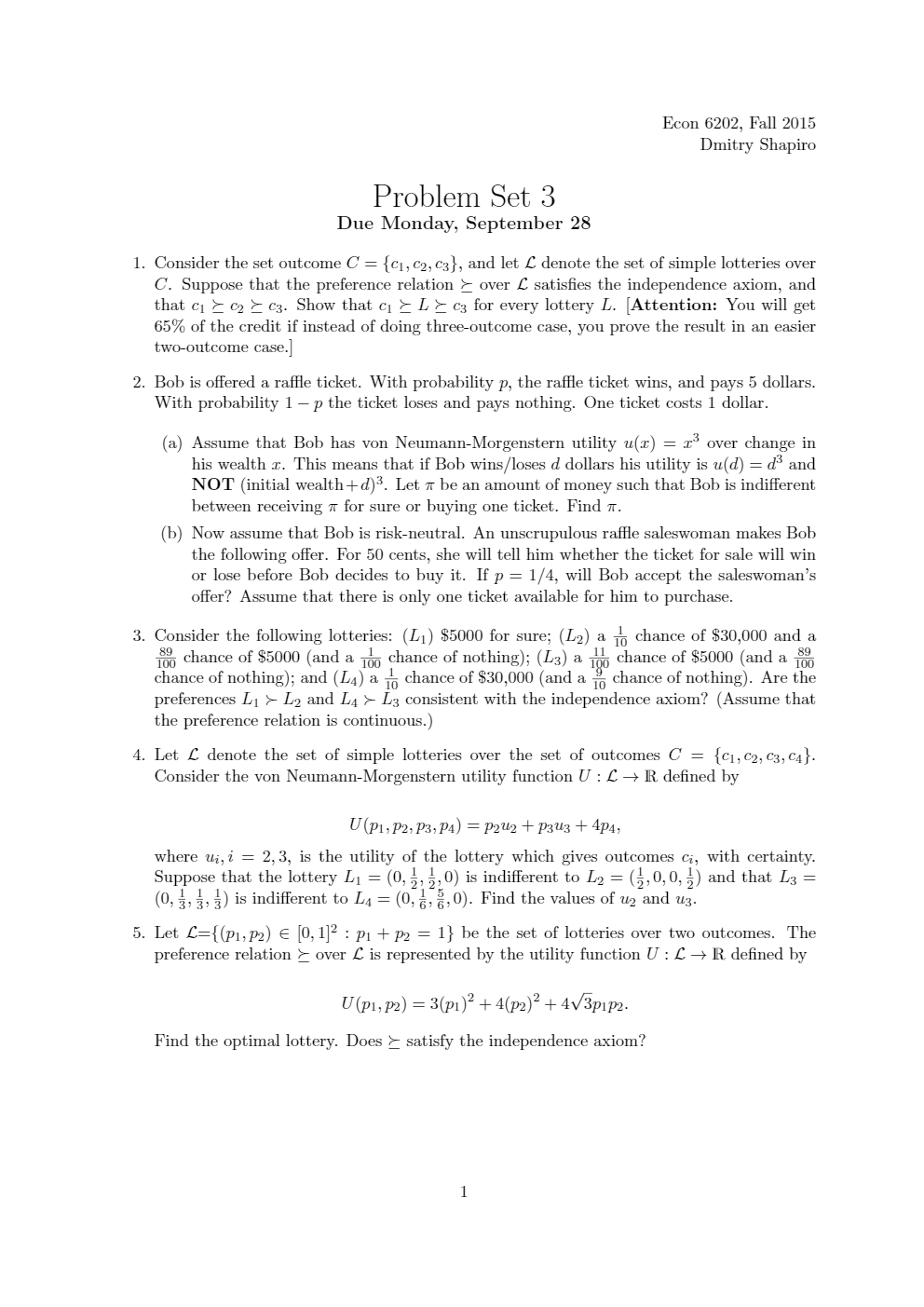i have a question for no. 4
Econ 6202, Fall 2015 Dmitry Shapiro Problem Set 3 Due Monday, September 28 1. Consider the set outcome C = {c1, C2, (3}, and let L denote the set of simple lotteries over C. Suppose that the preference relation > over & satisfies the independence axiom, and that c1 2 c2 > c3. Show that ci _ L > c3 for every lottery L. [Attention: You will get 65% of the credit if instead of doing three-outcome case, you prove the result in an easier two-outcome case.] 2. Bob is offered a raffle ticket. With probability p, the raffle ticket wins, and pays 5 dollars. With probability 1 -p the ticket loses and pays nothing. One ticket costs 1 dollar. (a) Assume that Bob has von Neumann-Morgenstern utility u(I) = 1' over change in his wealth r. This means that if Bob wins/loses d dollars his utility is u(d) = d's and NOT (initial wealth + d)3. Let a be an amount of money such that Bob is indifferent between receiving a for sure or buying one ticket. Find n. (b) Now assume that Bob is risk-neutral. An unscrupulous raffle saleswoman makes Bob the following offer. For 50 cents, she will tell him whether the ticket for sale will win or lose before Bob decides to buy it. If p = 1/4, will Bob accept the saleswoman's offer? Assume that there is only one ticket available for him to purchase. 3. Consider the following lotteries: (L1) $5000 for sure; (L2) a 16 chance of $30,000 and a 100 chance of $5000 (and a 100 chance of nothing); (L3) a 190 chance of $5000 (and a 100 chance of nothing); and (L4) a 10 chance of $30,000 (and a 10 chance of nothing). Are the preferences L1 > L2 and L4 > L3 consistent with the independence axiom? (Assume that the preference relation is continuous.) 4. Let L denote the set of simple lotteries over the set of outcomes C = {c1, (2, (3, C4}. Consider the von Neumann-Morgenstern utility function U : L - R defined by U(P1, P2, P3, P4) = P2u2 + P3u3 + 4p4, where ui, i = 2,3, is the utility of the lottery which gives outcomes ci, with certainty. Suppose that the lottery L1 = (0, 2, 5,0) is indifferent to L2 = (, 0, 0, ;) and that L3 = (0, 3, 3, 3) is indifferent to L4 = (0, 6, ;, 0). Find the values of u2 and u3. 5. Let L={(P1,p2) ( [0, 1]2 : p1 + p2 = 1} be the set of lotteries over two outcomes. The preference relation > over L is represented by the utility function U : [ -> R defined by U(P1, p2) = 3(P1)2 + 4(p2)2 + 4v3pip2. Find the optimal lottery. Does > satisfy the independence axiom







